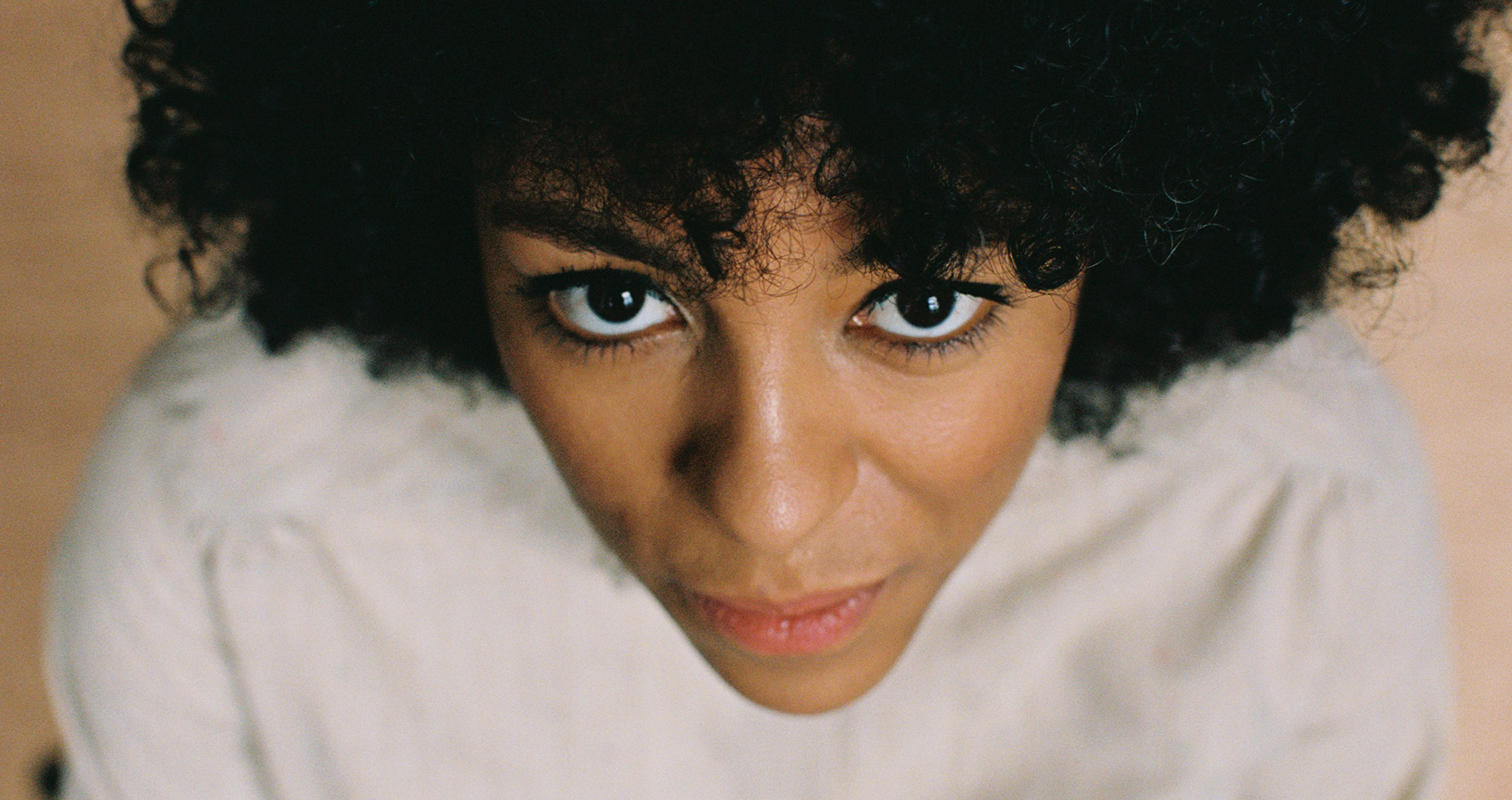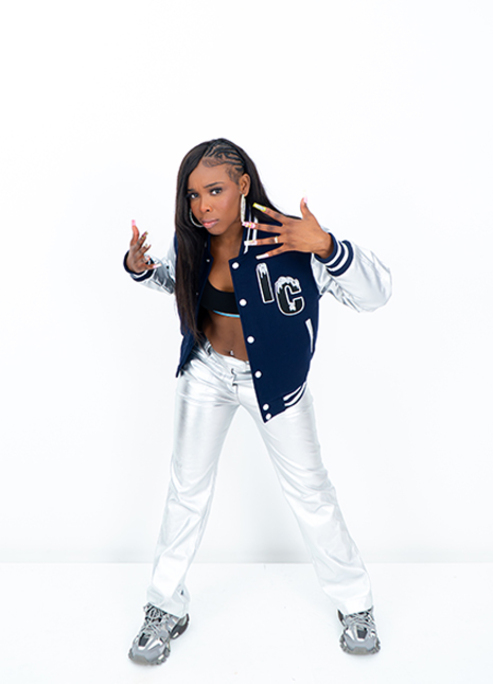We Interview Dutch-Ghanian Sensation Nana Adjoa About 'Big Dreaming Ants'
The Singer-Songwriter shares a candid tale of her critical reflections on society.
Nana Adjoa does not pull any punches on her debut album “Big Dreaming Ants”. Delivering tantalizing soothing vocals with piercing introspective lyrics the Dutch-Ghanian sensation shares a candid tale of her critical reflections on society. Her work is a reminder that we are tiny creatures in the span of life, seeking importance through the accomplishment of dreams.
The opening track on your debut album “National Song”, tackles forms of defense and a false sense of identity through attachment to nationalistic ideals, like seeing the value of money but not having any inner value. Can you elaborate on that?
When I started to write, I wrote a lot of lines based on the assurance of oneself but it was not directed at anyone. All of the lines were talking about people who feel connected in a way, and groups who hear this know that it's about them. The first verse is about people defending their rights; by doing so they have already passed what they are trying to defend. It’s also about what freedom means, to me at least.
The second verse is about how people are not aware of how lucky they are in the context of an unstable society. “National Song” deals with what it means to be from a nation– especially in this day and age; also because my mum is Dutch and my father is Ghanaian. What does it mean to belong to one nation? And what is the worth of being raised in Europe or Africa etc? What are the differences between us? I feel like neo-nationalism is a way of grabbing on to identity because they might be a bit lost because we are forgetting that we are all connected. You may be more fortunate to be in the West in comparison to other places. It was more of a question; who are you? Where do you belong and do you understand the worth?
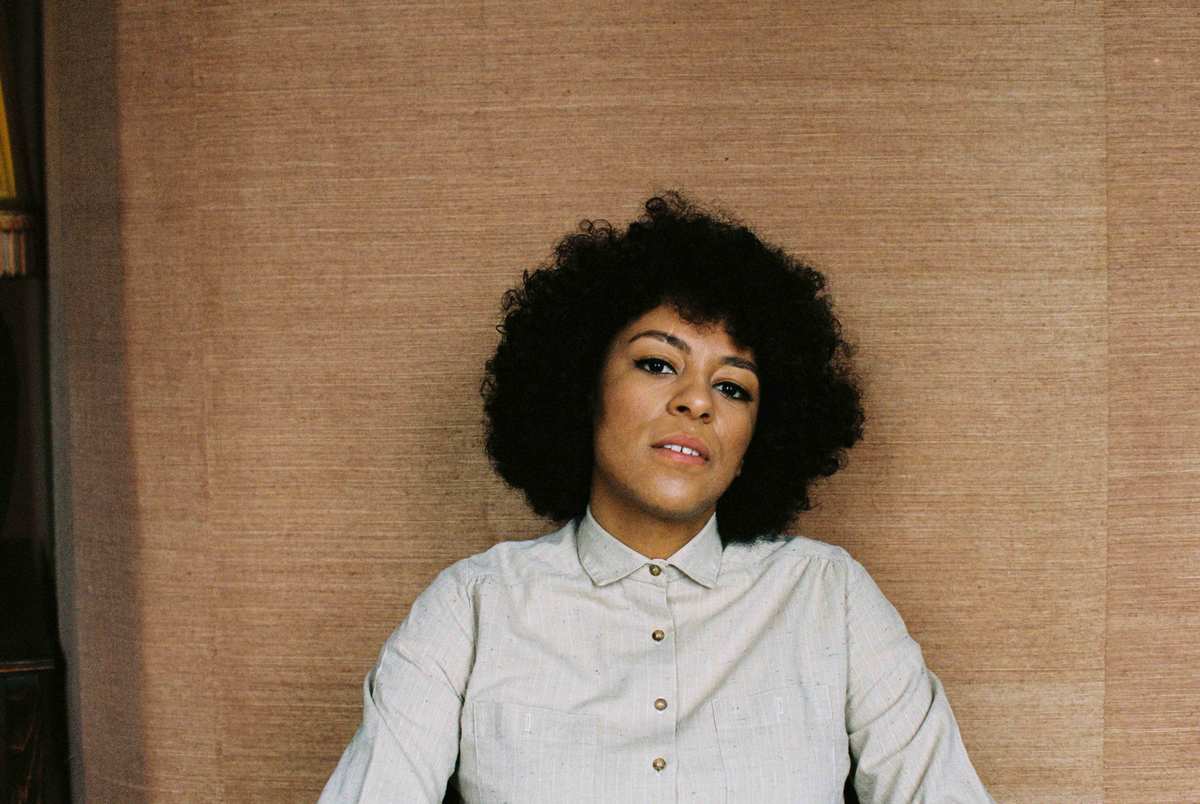
Cardboard Castle sounds like a critique on society. “White lie paint to cover imperfections it does not dry as it just never settles”? Done with pretenders? What helped you see through the facade?
I guess I had been talking a lot with my friends about the current state of the world, not recently because I wrote these songs about a year ago. We were talking about people who are in high places but who don’t uphold the standards which we expect from leaders. Since 2020 everything is spiraling out of control faster than when I wrote this. A lot of lying is going on and suddenly people are okay with lying. It feels like everything is built on lies, getting called out for lying is defended with another lie.
For me, it feels like a pile of nothingness that does not get to the centre of the thing, the truth. Cardboard castle was like a facade when you finally come to see things for what they are. A metaphorical feeling; when the authorities do not uphold what is expected of them, we need to ask them to do their job correctly. That came from my anger after having these talks with my friends.
There is a shift in the album, after critiquing society you critique yourself in “Throw Stones”, what caused you to critically reflect on yourself?
This song talks about the online community and the hate that is now so often spread online. People say the worst things to each other without repercussions! I wanted to express my anger and discontent with some of the narratives which we see on platforms such as Twitter. When I read through the things people say I find myself in disbelief. How is it okay to say these things? Why are they not flagged or held accountable? It felt crazy! However, the song is also self-reflective, we have all experienced similar emotions to those who write these tweets. It is a struggle to not give into extreme emotions and to try instead to lead a conversation that is not driven by hate or anger. It’s hard to do but I think that it’s the way to go. I’m trying to calm myself down so that I can keep on doing that.
In your track “No room” you sing about not wanting to be constrained “ to cubicle life and hearing from a voice on the other end” Could it possibly be God giving you a wake-up call?
God? That would be nice. No, it is not that, it’s about conversations that happen but where nothing is said. For me, personally, it is about having conversations, but a lot of what is coming through is just noise. When we do have conversations with strangers we often engage in small talk. But I am not too good at chit chat, small talk to others feel like it comes naturally. That got me thinking, “why am I so bad at this? Why is this so hard for me?”
It isn’t a statement, it’s more just that I am really bad at doing it. I need silence to get my thoughts together, I guess I need a long conversation to say something.
You sing about a waiting game on “In Lesser Light Pollution”, who were you waiting for?
This is the only love song that I have ever written. It was one of the last songs I wrote for the album because I fell in love, that’s what happened in my life. This song is about me missing this person when she went away for a couple of months. The waiting game for me was watching the moon and thinking of the other person and hoping that they are doing the same. It is a bit out of tune with the album, but it’s what I felt at that moment. It’s a hopeful song that thinks about time, and about the person wishing for the moment that you meet again.
“Every Song” - reminds me of the biblical book Lamentations in which the preacher writes nothing new under the sun. Similarly, in your song, the ephemerality and futileness of life are expressed in an almost dream-like way, accompanied by traditional drums. It's like an impairment of wisdom that sounds like a proverb.
It is funny because it came to me when writing a different song. We had been stuck in the studio for ages and it just came to me like, “what are we doing?” It was an existential crisis almost. I took a break from the studio session and I started singing the words that came to me, I went back in and started recording it. In the beginning, it was just vocals, it was just a stream of consciousness. We all try to create something original, but we always take something that has already been done. We always feel the need to express ourselves. What is that need really worth when everything has already been done? As humans, that is what we do. We keep on creating even if that means just going in circles. We can’t stop, it’s in our DNA. It was a dream-like feeling, questioning what inspiration is. The production was interesting as I kept it simple and basic, but also throwing around some other sounds to keep your ears interested. The song is a long stream of consciousness.
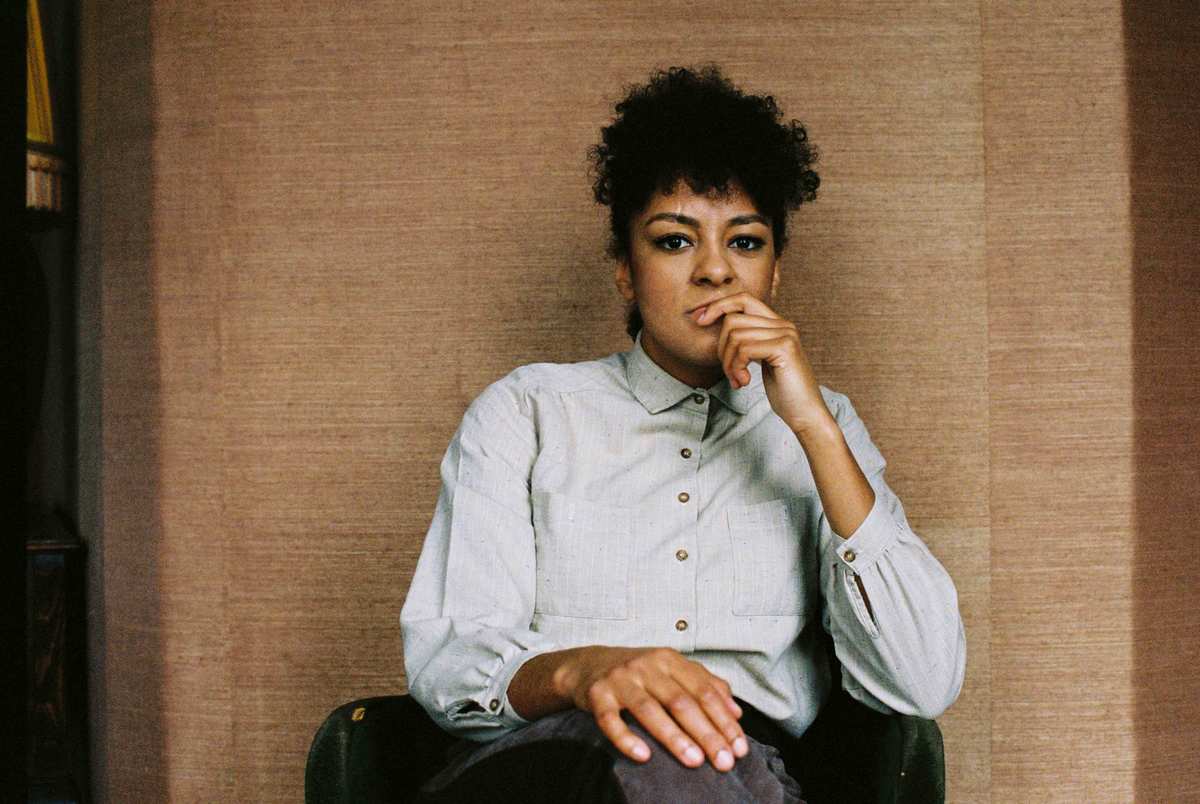
The only cover on the album is of Ebo Taylor’s “Love and Death”. You fused elements of European and African music together in this song. Can you talk us through the production?
I co-produced this album with my producer, Wannes Salome. I started with a lot of songs and other parts as we had a lot of demos. For this album, I wanted to do a cover and when Wannes and I started to work together this was one of the first songs that we did to see if our dynamic could work together. I chose this song after hearing it again and I fell in love again! I had the idea for this album to combine European classical music with African rhythms in a song. For this cover, I wanted to use the piano, as the song only has two chords, so the piano enriches it a bit. We played inversions of the same chords to bring out the classical sound. I didn’t want to make a ballad-like a girl who only sings about love or death.
“She’s Stronger” Tells the story of a woman who is independent, responsible, and admirable. Who inspired that song? Someone, you are in awe of?
It’s about the experience of meeting women who in the beginning seem a lot like myself, but then you later find out that she’s twice the person I am. More independent, freer. She is the person I aspire to be, more adventurous and forgiving, etc. It is a beautiful thing, meeting someone and realising things about yourself. The first time experiencing this is weird, but you soon catch on that you’re not who you originally thought you were. These women are the stronger version, and that’s where the idea came from- to write a song about the better version of yourself, and the motivation to be better.
“Who Do We Look To Now” talks about an unexpected change which results in challenging the norm and no longer being mesmerised by facades. “Look away or I’ll see right through” and “Shepards turn to sheep”. What did you have in mind when writing this?
Similar to ‘Cardboard Castle’, is about realizing that things aren’t as they seem. Looking not in anger but hopelessness. It is about feeling like you are not up to the task to lead yourself and needing someone to look up to. But who is there to look up to nowadays? I think everybody needs a mentor or leader in life, especially in countries now. Who are these leaders? There are a lot of leaders in the world who aren’t good, everyone wants to have people to follow. We desire freedom but we also need someone to follow, it’s sad just going along with what these people offer but never asking for more. This song was about questioning who do we look up to now?
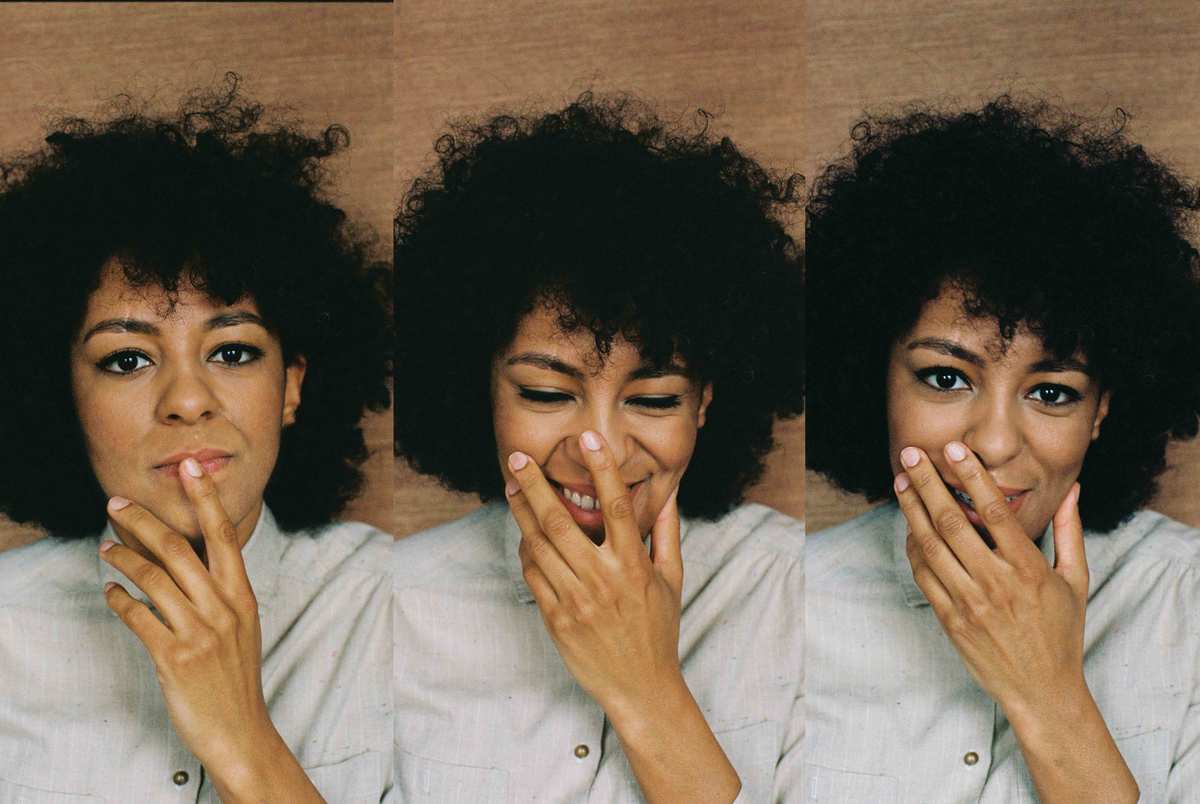
The production on the project mirrors an 80s style of dreamy melodies accompanied by piercing lyrics. What was your inspiration behind creating this record?
When I started recording this album, I unconsciously channeled what was going on in my life at the time. I was feeling a bit lost in the hole, a lot of things were changing in the world. I toured in the states and it helped me realize how big the world is and how small I am. For the album inspiration, I had a picture of the Olympic games 1932, individuals being cheered on by a stadium for doing exceptional things. I looked at myself, and thought I have these big dreams and goals but what does that do for the world? Everyone has these dreams. I questioned myself and what I was doing, and asking questions helped me write about it. The songs came out, after the first couple a connection was established and a direction to go in. The title ‘Big Dreaming Ants’ came from one of the songs, “I Want To Change”.
This album is me trying to find out who we are in this and finding my place. There's a piece of that search in each song. It is about being honest with yourself about the fact that you’re looking for something and realizing that everyone else is doing the same. There is an unanswered question in our lives and we need time to process it. Writing this album helped me understand myself a bit better, and allowed myself to go through those thoughts. It is important to drift through things and to ask questions. It gives us strength, otherwise, you’re fighting your demons without really realizing it.
Follow Nana on Instagram @nanaadjoamusic



